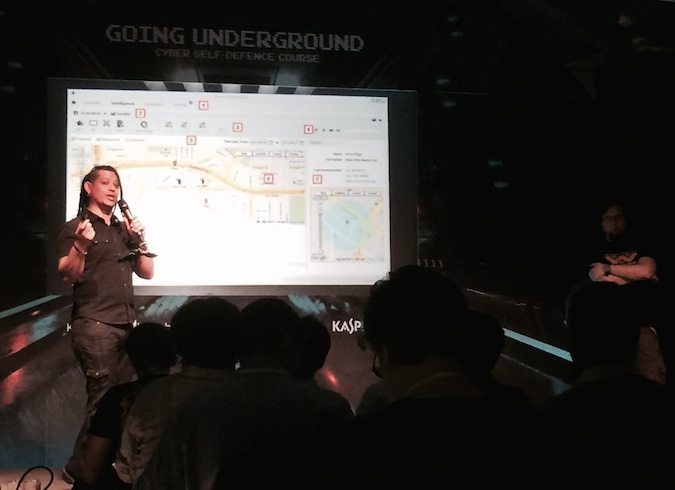Morgan Marquis-Boire and Sergey Golovanov Present Research on HackingTeam’s Remote Control System “Galileo” in London on June 24
Researchers from Kaspersky Lab and Citizen Lab have uncovered new details on advanced surveillance tools offered by the Italian company HackingTeam, including never before seen implants for smartphones running on iOS and Android.
In addition to sharing details of the mobile threats, researchers from the two organizations detailed what they call a “massive international infrastructure” used to control ‘Remote Control System’ (RCS) malware implants.
Sold as “legal” spyware or lawful interception tools, the Trojans are part of the suite called RCS, aka Galileo (PDF), developed by HackingTeam.
Kaspersky Lab worked closely with Morgan Marquis-Boire of Citzen Lab, who has been researching the HackingTeam malware set extensively.
Sergey Golovanov, Principal Security Researcher at Kaspersky Lab and Marquis-Boire presented the research (PDF) at a press event in London on Tuesday.
It was previously known that HackingTeam’s mobile Trojans for iOS and Android existed, but they had not been identified before being used in attacks, Kaspersky said.
According to the report, the operators behind the Galileo RCS built a specific malicious implant for each specific target, which the attacker delivers to the mobile device of the victim.
Known infection vectors include spear-phishing via social engineering – often coupled with exploits, including zero-days –and local infections via USB cables while synchronizing mobile devices.
According to Marquis-Boire, the list of victims targeted by the tools includes activists and human rights advocates, as well as journalists and politicians.
Fortunately, successfully compromising an iPhone can be challenging, as installing the Galileo RCS mobile Trojan requires the device to be jailbroken. However, non-jailbroken iPhones can become vulnerable as well, Kaspersky warned, as an attacker could run a jailbreaking tool such as ‘Evasi0n’ via a previously infected computer and conduct a remote jailbreak.
“The fact that only jailbroken iOS devices are supported can be a limiting factor,” the report said. “In this case the only thing that can protect a user from a remote jailbreak and infection is the mobile device’s passcode. However, if the device is unlocked while connected to the infected computer, it can be infected by the attacker.”
According to the report, the RCS mobile Trojans are capable of performing a variety of surveillance functions, including reporting the target’s location, taking photos, copying events from the device’s calendar, and registering new SIM cards inserted in the infected device. It can also intercept phone calls and SMS messages, including chat messages sent from specific applications such as Viber, WhatsApp and Skype.
The security firm said that it used “special indicators and connectivity data” obtained by reverse engineering existing samples to map out more than 320 RCS C&C servers in more than 40 countries.
The majority of the servers were found in the United States, Kazakhstan, Ecuador, the United Kingdom and Canada.
“The presence of these servers in a given country doesn’t mean to say they are used by that particular country’s law enforcement agencies,” said Golovanov. “However, it makes sense for the users of RCS to deploy C&Cs in locations they control – where there are minimal risks of cross-border legal issues or server seizures.”
“The new data we are publishing on HackingTeam’s RCS is extremely important because it shows the level of sophistication and scale of these surveillance tools,” Kaspersky concluded.
The full report from Kaspersky Lab is available online.
